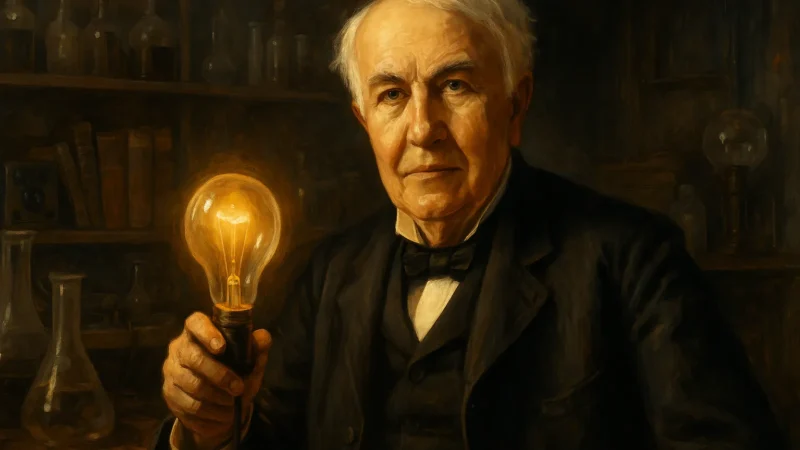Biography of Paul of Tarsus: The Apostle to the Gentiles
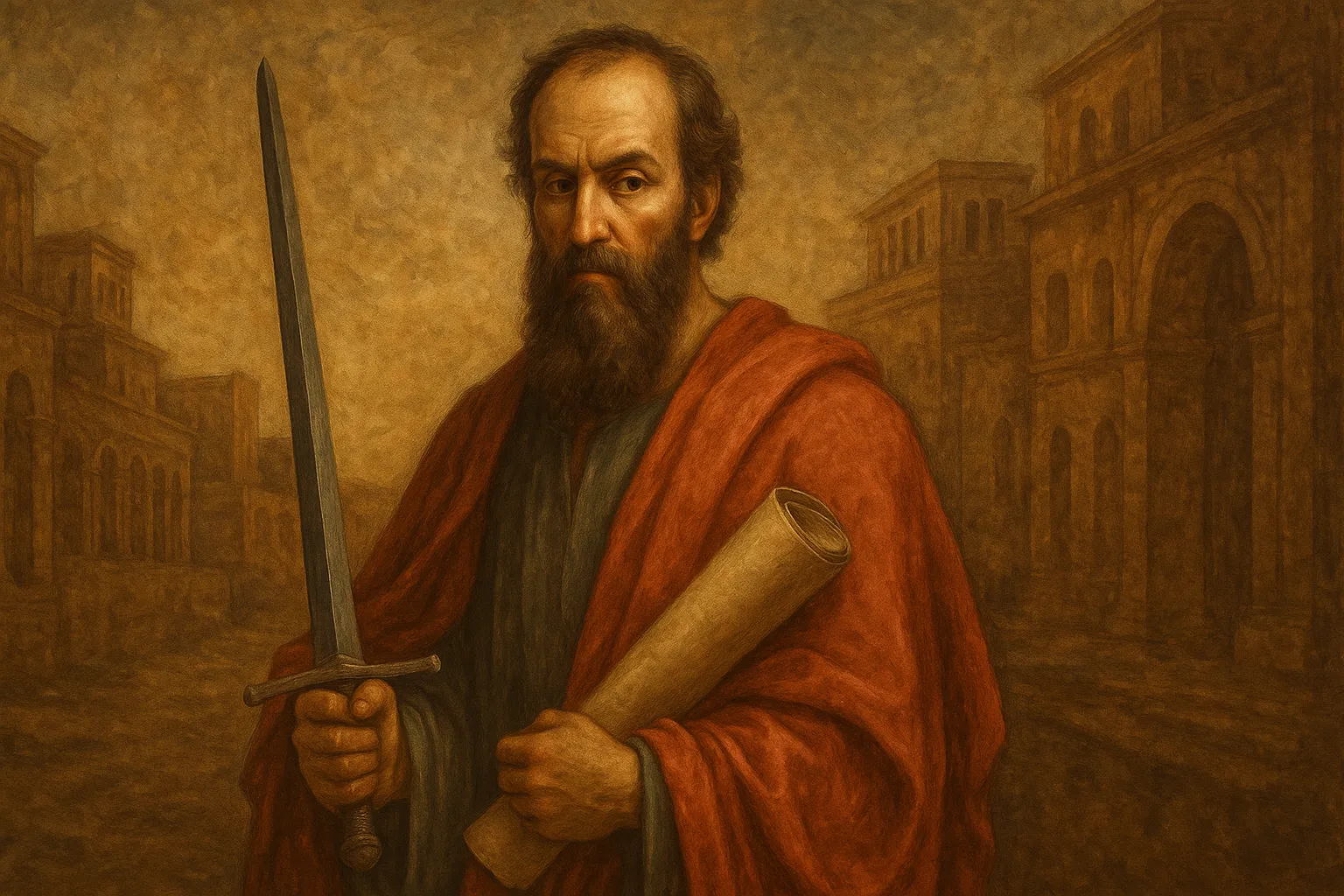
Few individuals have shaped the development of Christianity as profoundly as Paul of Tarsus, also known as Saint Paul. His story is one of radical transformation: from a persecutor of Christians to one of the most passionate apostles and theologians of the early Christian movement. In this biography, we will critically and educationally explore his life, work, and lasting impact on religious history and Western culture.
Origins and Education
A Hellenistic Jew
Paul was born around 5 AD in Tarsus, a prosperous city in the region of Cilicia, in present-day Turkey. He was born into a Jewish family of the tribe of Benjamin and held the privilege of Roman citizenship, a status that would play a key role later in his life.
From a young age, he received thorough religious training under Gamaliel, one of the most renowned Pharisaic rabbis of the time. This education allowed him to master Hebrew Scriptures and Mosaic Law, but he was also exposed to Greek culture, giving him a broad and cosmopolitan perspective.
Persecutor of Christians
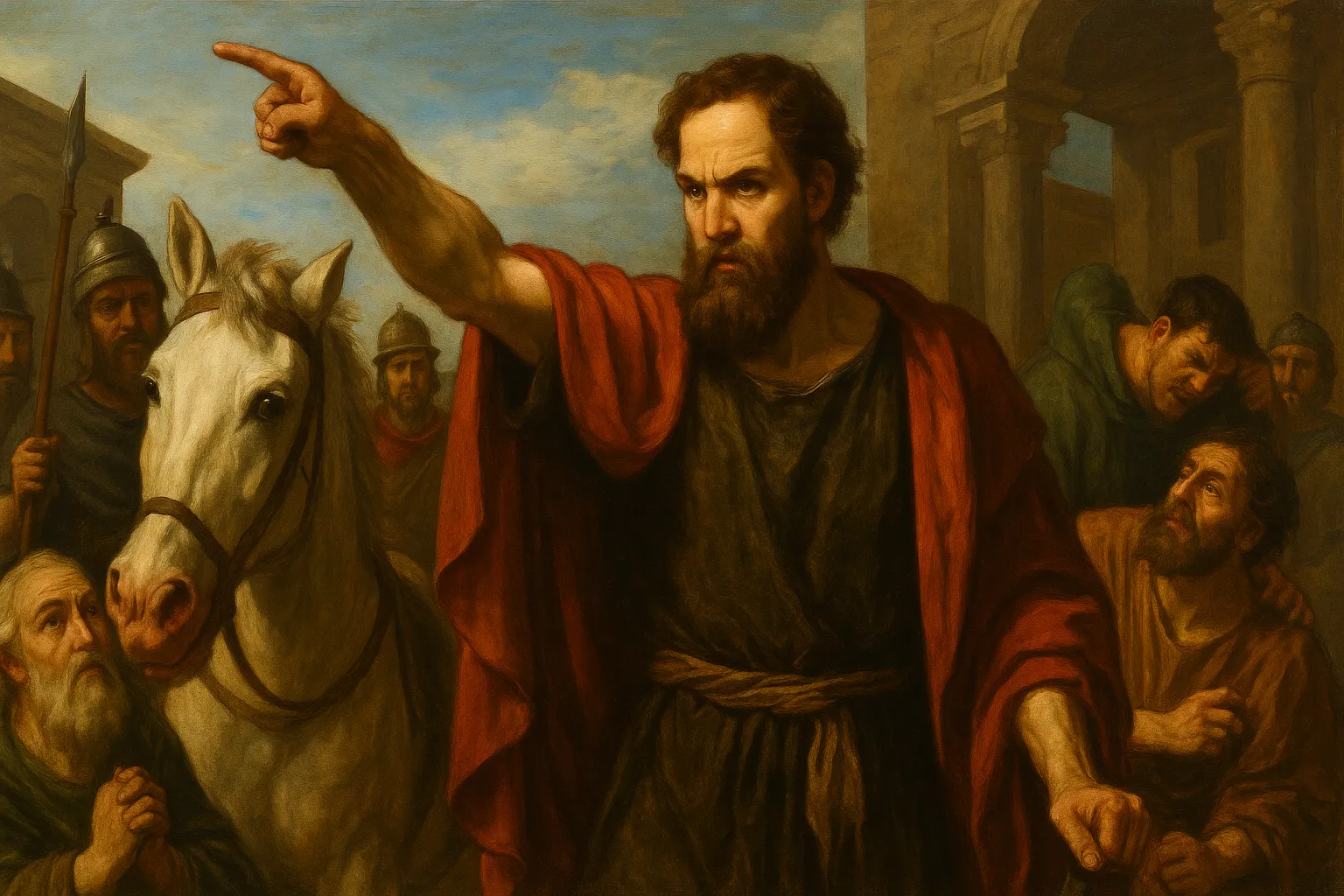
Saul, the Persecutor
In his early public life, Paul (then known as Saul) was a zealous persecutor of the first Christians, whom he considered heretics leading the people astray from true Jewish faith. He actively participated in suppressing Jesus of Nazareth’s followers, authorizing arrests and possibly participating in executions such as that of Stephen, the first Christian martyr.
His zeal for the Law led him to request letters of authorization from the high priest to pursue Christians in Damascus, a journey that would dramatically change his life.
Conversion on the Road to Damascus
The Supernatural Encounter
While traveling to Damascus, Saul experienced an event that marked a before and after: a vision of the risen Jesus. According to the Acts of the Apostles, a blinding light knocked him off his horse, and a heavenly voice said: “Saul, Saul, why do you persecute me?” Temporarily blinded, he was led to the city where Ananias visited him, restored his sight, and baptized him.
This episode transformed Saul into Paul, beginning his mission as one of Christianity’s greatest preachers.
Apostle to the Gentiles
A Mission Beyond Judaism
Unlike other early Christian leaders such as Peter or James who focused on Jews, Paul understood his mission as a call to evangelize the Gentiles (non-Jews). His message was revolutionary: salvation through faith in Jesus was open to everyone, without the need to observe Mosaic Law, including circumcision and dietary restrictions.
This approach was key to Christianity’s expansion beyond Palestine’s borders and its consolidation as a universal religion.
His Missionary Journeys
Traveling the Roman Empire
Paul undertook at least three major missionary journeys documented in the Acts of the Apostles, during which he founded numerous Christian communities:
- First Journey: traveled through Cyprus and Asia Minor (Antioch, Iconium, Lystra, Derbe).
- Second Journey: extended to Macedonia and Greece (Philippi, Thessalonica, Corinth, Athens).
- Third Journey: revisited communities, especially in Ephesus.
These journeys were fraught with difficulties: shipwrecks, imprisonments, persecutions, and theological debates. However, they allowed him to establish networks of churches that became the foundation of early Christianity.
The Pauline Letters: Doctrinal Legacy
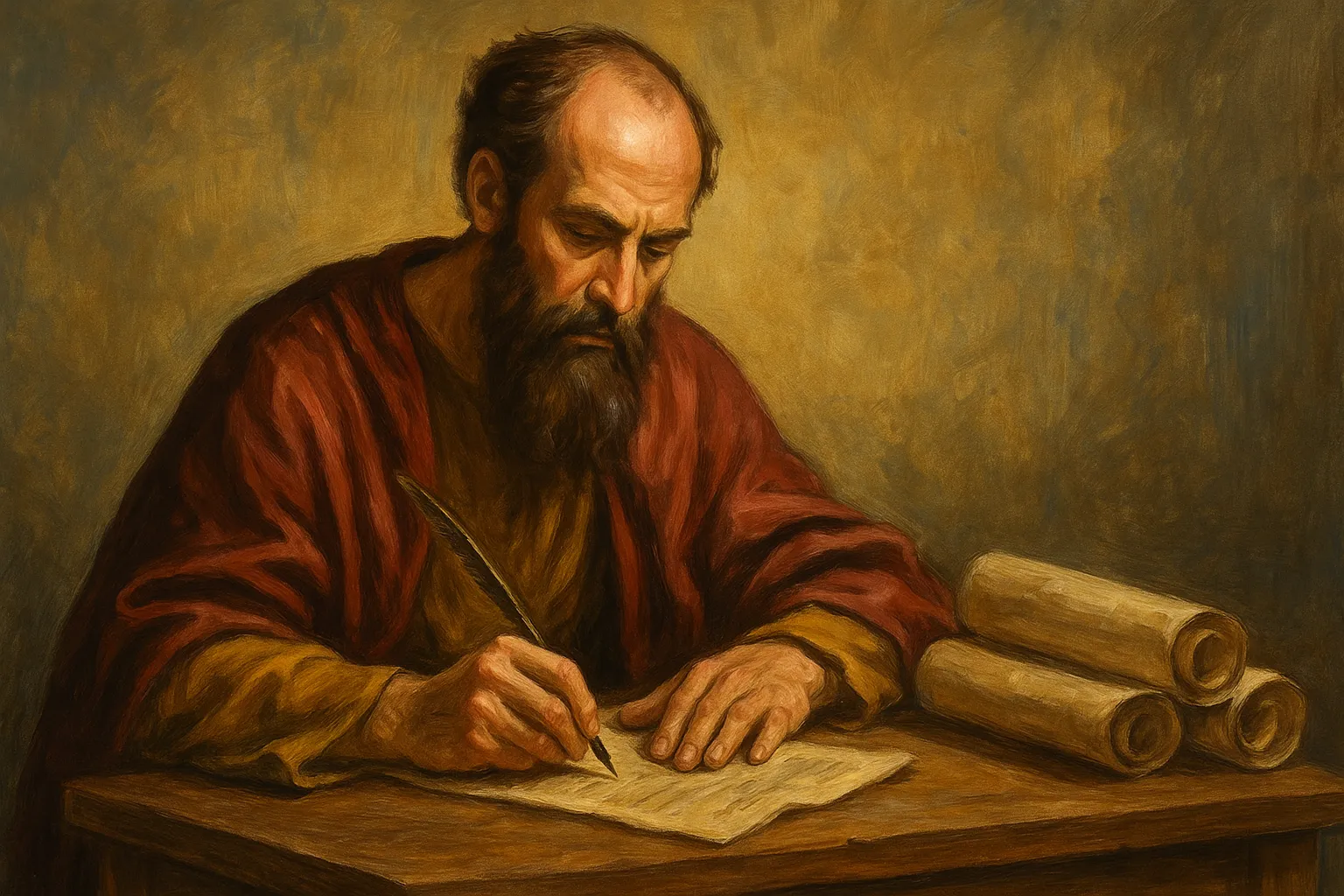
Christianity’s Theologian
A large portion of the New Testament consists of Paul’s epistles, letters addressed to the communities he founded or visited. These letters address deep theological themes that shaped Christian thought:
- Justification by faith (Letter to the Romans).
- The relationship between grace and the Law (Galatians).
- Christ as the new Adam (1 Corinthians, Ephesians).
- Resurrection and eschatological hope.
Paul’s letters not only offered doctrinal teaching but also practical advice on community life, ethics, and church organization.
Internal Conflicts and the Council of Jerusalem
Tensions in the Early Church
Paul’s inclusive approach caused tensions with more conservative sectors of the Jerusalem church, who wanted Gentiles to observe Mosaic Law. These disputes were partially resolved at the Council of Jerusalem, where it was agreed that Gentiles could be accepted without full adherence to Jewish traditions.
This agreement was crucial for Christianity’s doctrinal autonomy from Judaism and facilitated its expansion.
Arrest and Appeal to Rome
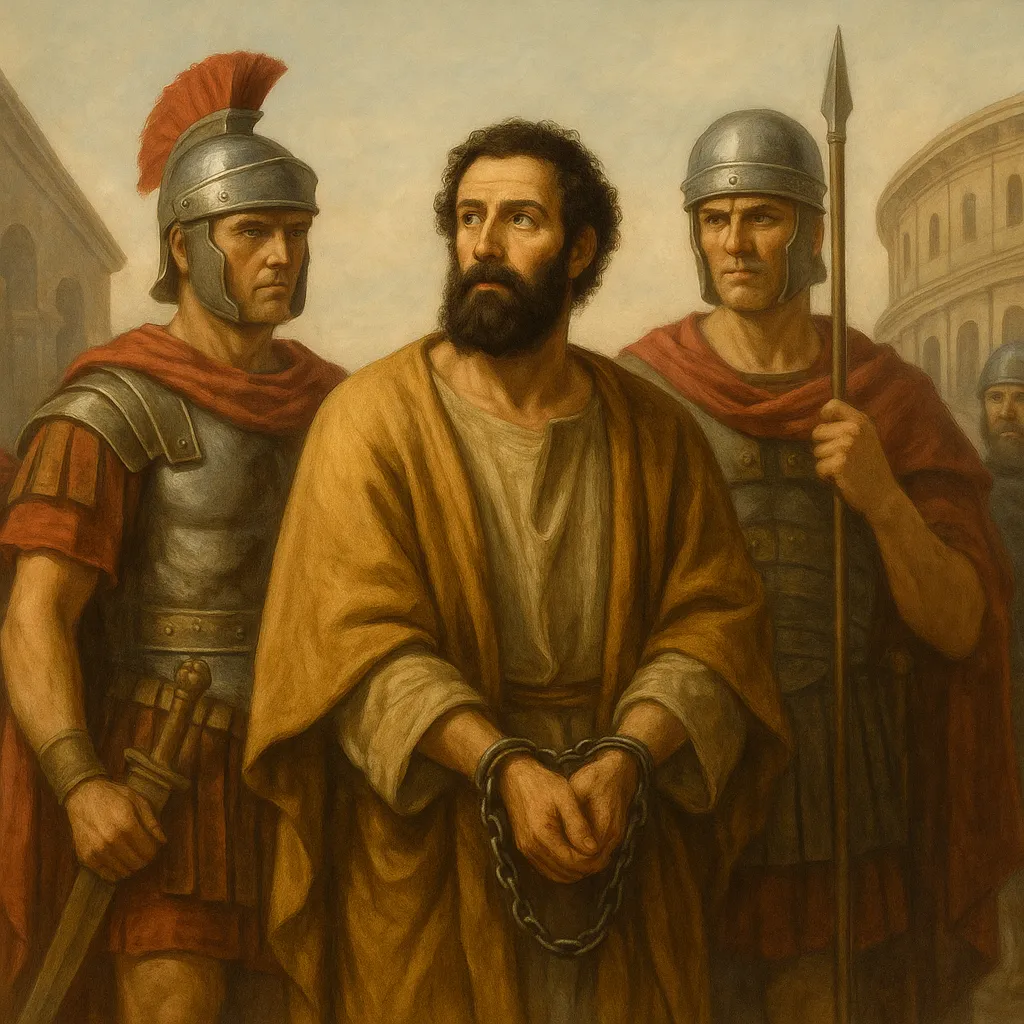
The Protection of Roman Citizenship
Upon returning to Jerusalem, Paul was arrested following a disturbance provoked by accusations of temple desecration. Using his Roman citizenship, he appealed directly to the emperor, leading him as a prisoner to Rome.
During his captivity, he continued writing letters and preaching. His arrival in Rome symbolized Christianity’s entry into the heart of the Empire.
Martyrdom and Death
The End of His Apostolic Career
Although the exact details remain debated, it is believed that Paul was executed in Rome around 64 AD during Nero’s persecution of Christians. As a Roman citizen, he was beheaded rather than crucified.
His martyrdom cemented his role as one of the foundational pillars of Christian faith.
Paul’s Historical Impact
Founder of Universal Christianity
Paul’s importance lies not only in his missionary activity but in his ability to systematize Christian theology. He effectively shaped Christianity as a global religion, detached from the ethnic and legal boundaries of Judaism.
His thought influenced:
- The development of Christian dogma.
- Western philosophy (e.g., in Augustine and Luther).
- Canon law and Christian morality.
- The debate on faith, grace, and works.
Without Paul, Christianity might have remained another Jewish sect.
Modern Criticism and Debates
Reinterpreting Paul
Today, scholars have revisited Paul’s figure:
- Debating his relationship with Judaism: was he anti-Jewish or an internal reformer?
- Discussing his views on women’s roles in the church.
- Questioning the authenticity of several epistles attributed to him.
Nevertheless, his theological and organizational genius remains undisputed.

The life of Paul of Tarsus is one of the most fascinating in religious history. His journey from zealous persecutor to passionate defender of the Gospel is a testament to faith’s transformative power.
His legacy transcends religion, influencing culture, philosophy, law, and the political history of the West. Over two thousand years after his death, his figure continues to generate debate, inspiration, and scholarly study. Paul not only preached to the Gentiles—he forged the foundations of what we know today as Christianity.

